Figure 6.13 shows a 2.0V potentiometer used for the determination of internal resistance of a 1.5V cell. The balance point of the cell in open circuit is 76.3cm. Whan a resistor of 9.5Ω is used in the external circuit of the cell, the balance point shifts to 64.8cm, length of the potentiometer. Dentermine the internal resistance of the cell.
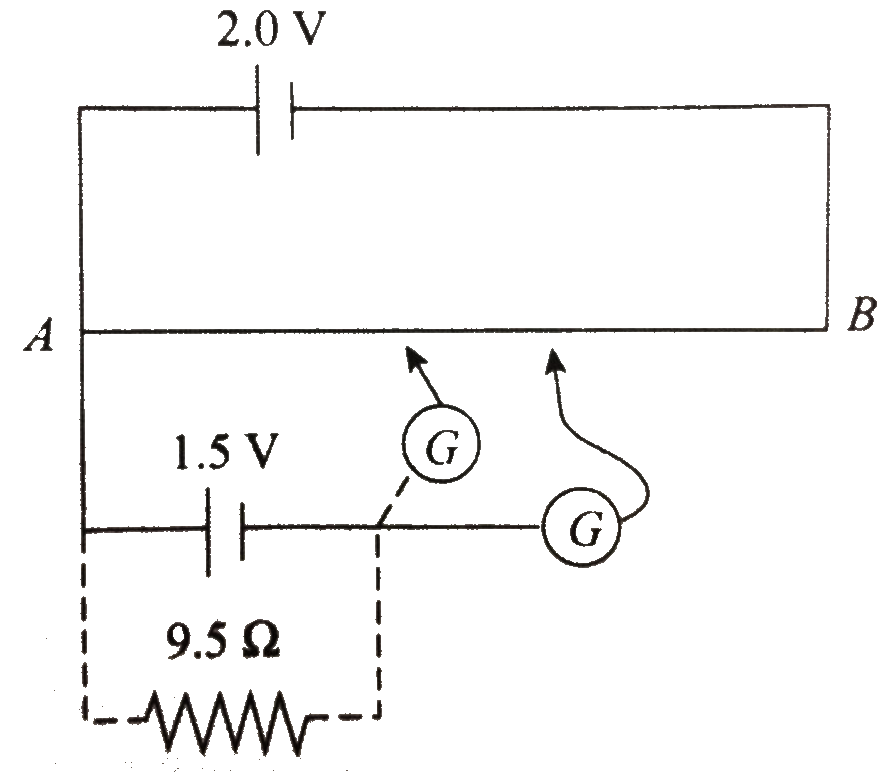
Here, l1=76.3cm, l2=64.8cm, r= ?, r=95Ω
Now, r=(l1−l2l2)R=(76.3−64.864.8)×9.5=1.68Ω
Topper's Solved these Questions
- ELECTRICAL MEASURING INSTRUMENTSBOOK - CENGAGE PHYSICSCHAPTER - ELECTRICAL MEASURING INSTRUMENTSEXERCISE - Solved Examples
4 Videos
- ELECTRICAL MEASURING INSTRUMENTSBOOK - CENGAGE PHYSICSCHAPTER - ELECTRICAL MEASURING INSTRUMENTSEXERCISE - Exercise 6.1
15 Videos
- ELECTRIC POTENTIALBOOK - CENGAGE PHYSICSCHAPTER - ELECTRIC POTENTIALEXERCISE - DPP 3.5
14 Videos
- ELECTROMAGENTIC INDUCTIONBOOK - CENGAGE PHYSICSCHAPTER - ELECTROMAGENTIC INDUCTIONEXERCISE - QUESTION BANK
40 Videos
Similar Questions
Fig. shows a 2.0 V potentiometer used for the determination of internal resistance of a 1.5 V cell. The balance point of the cell in open circuit is 76.3 cm. When a resistor of 9.5Ω is used in the external circuit of the cell, the balance point shifts to 64.8 cm length of the potentiometer wire. Determine the internal resistance of the cell.
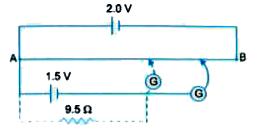
View SolutionIn a potentiometer arrangement for determining the emf of a cell, the balance point of the cell in open circuit is 350 cm. When a resistance of 9Ω is used in the external circuit of the cell, the balance point shifts to 300 cm. Determine the internal resistance of the cell.
View Solution
Knowledge Check
3V poteniometer used for the determination of internal resistance of a 2.4V cell. The balanced point of the cell in open circuit is 75.8cm. When a resistor of 10.2Ω is used in the external circuit of the cell the balance point shifts to 68.3cm length of the potentiometer wire. The internal resistance of the cell is
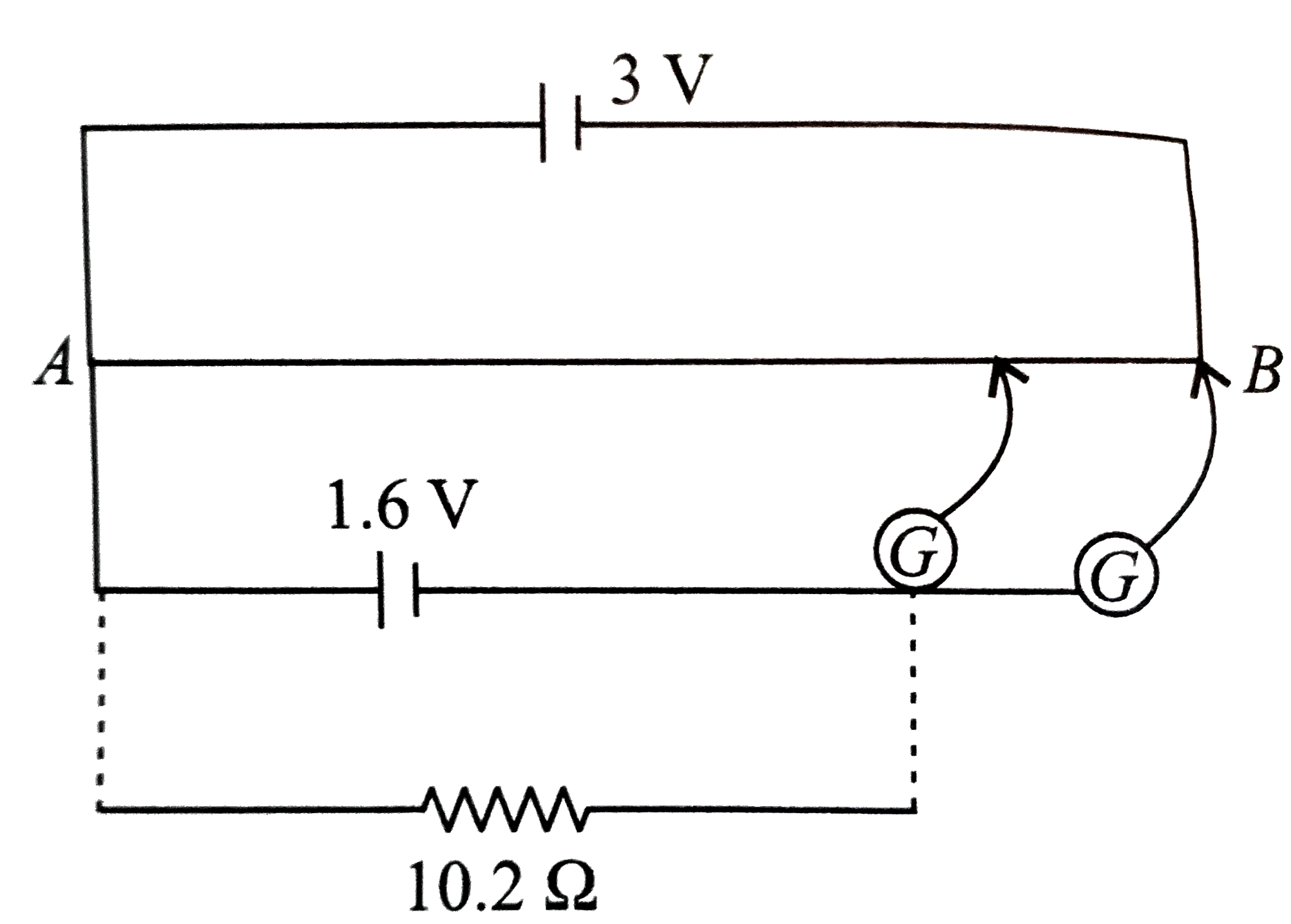 A2.5ΩB2.25ΩC1.12ΩD3.2Ω
A2.5ΩB2.25ΩC1.12ΩD3.2ΩA 2.0V potentiometer is used to determine the internal resistance ofa I.SY cell. The balance point of the cell in the open circuit is obtained at 75cm. When· a resistor of 10Ω is connected across the cell, the balance point shifts to 60cm. The internal resistance of the cell is:
A1.5ΩB2.5ΩC3.5ΩD4.5ΩA 2.0 V potentiometer is used to determine the internal resistance of 1.5V cell. The balance point of the cell in the circuit is 75cm. When a resistor of 10Ω is connected across cel, the balance point sifts to 60cm. The internal resistance of the cell is
A1.5ΩB2.5ΩC3.5ΩD4.5Ω
In a potentiometer arrangement for determining the emf of cell, the balance point of the cell in open circuit is 350 cm. When a resistance of 9Ω is used in the external circuit of cell , the balance point shifts to 300 cm. Determine the internal resistance of the cell.
View SolutionA 10 V cells of negligible internal resistance is connected in parallel across a battery of emf 200 V and internal resistance 38Q . As shown in the figures , Find the value of current in the circuit
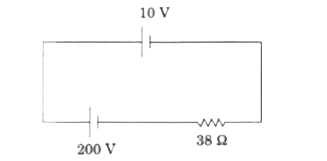
In a potentiometer arrangement for determining the emf . of a cell the balance point of the cell in open circuit is 350 cm. When a resistance of 9Q . is used in the external circuit of the cells the balance point shift to 300 cm. Determine the internal resistance of the cell.
View SolutionA potentiometer is being used to determine the internal resistance of a primary cell. The balance point for the cell in an open circuit is at 76.3 cm. when the cell sends a current in a resistor of 9.5Ω, the balance point shifts to 64.8cm. Find the internal resistance of the cell.
View SolutionFigure shows a 2.0V potentiometer used for the determination of internal resistance of a 1.5V cell , When the key is not inserted in the plug , the balance point is at 60 cm and in the closed circuit the balance point is at 50 cm. Find the internal resistance of the cell .
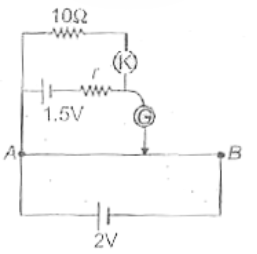
View SolutionThe internal resistance of a cell is determined by using a potentiometer. In an experimetn, an external resistance of 60Ω is used across the given cell. When the key is closed, the balance length on the potentiometer decreases form 72 cm to 60 cm. calculate the internal resistance of the cell.
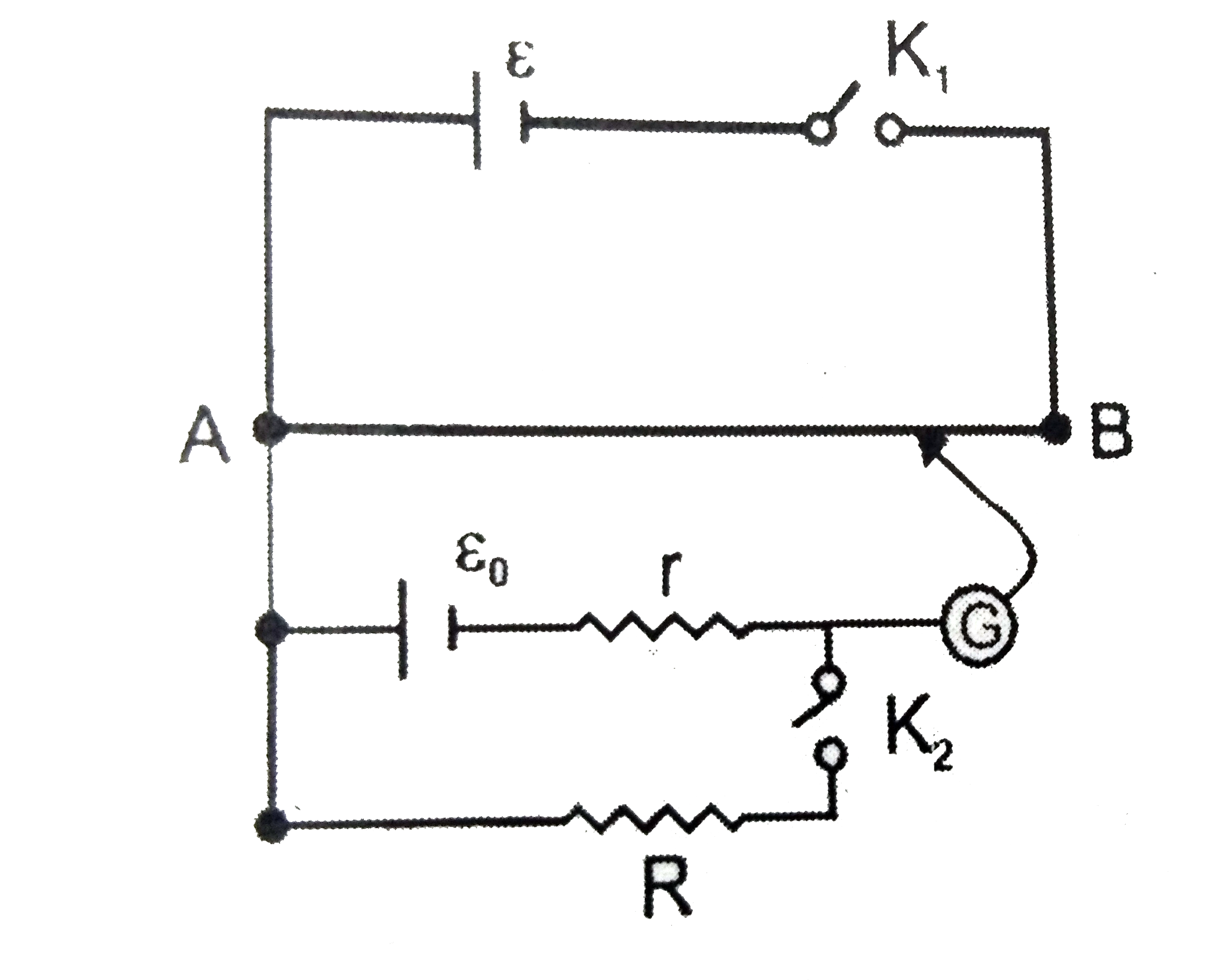
View Solution
